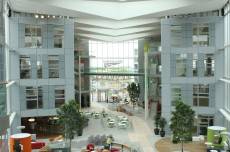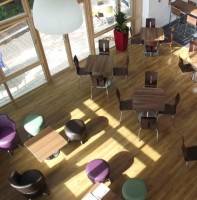November 15, 2013
Quarter of the UK workforce report they’re suffering long-term ill health
Administrative and support activities, which includes facilities management, is one of five UK industries where employees have reported the highest levels of long-term ill health. However across all the sectors a staggering eight million people, or a quarter of the UK’s workforce (27%) say they suffer from a health problem that’s lasted more than a year. According to the new Health at Work Index from the British Heart Foundation (BHF) one in ten workers (12%) – approximately 3.5 million people – said their ability to do their job is limited by poor health. This includes over half of diabetes sufferers (58%) and the same proportion of people suffering from depression, mental illness or panic attacks (58%). (more…)






















November 18, 2013
Interview: Dave Coplin of Microsoft on Big Data, engagement and culture
by Mark Eltringham • Comment, Technology, Workplace, Workplace design
(more…)